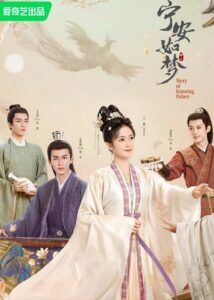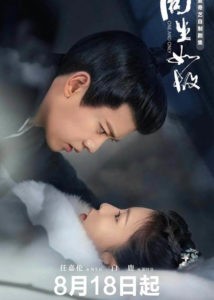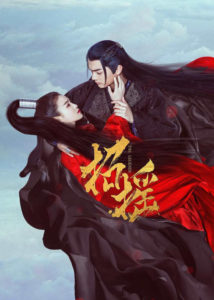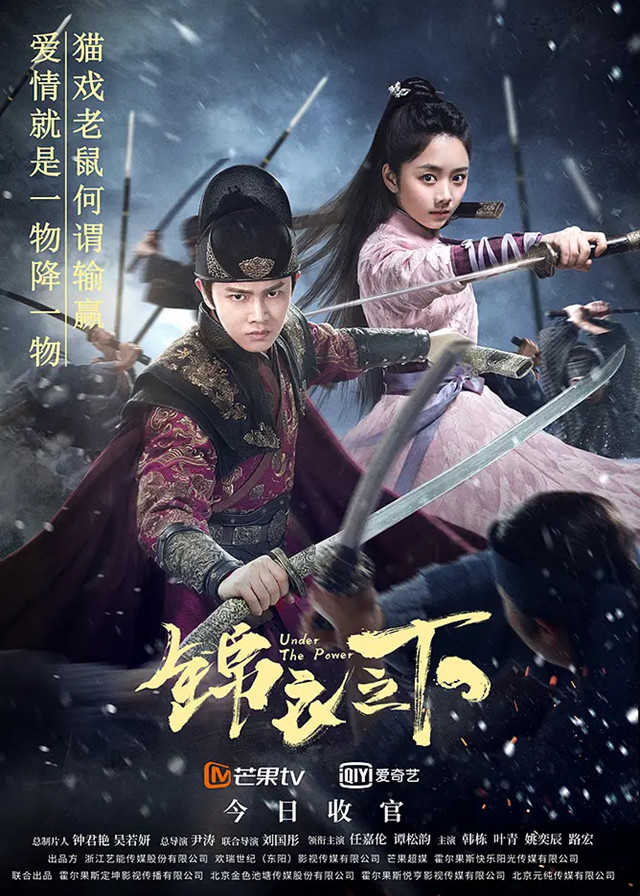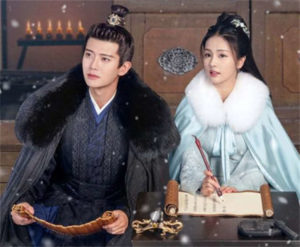Overlord Episode 32 Recap
> Overlord Recap
Long Aoyi reflected on her time in the palace, acknowledging that despite establishing the Palace Gathering, she had made no progress in finding her master's killer. She silently prayed for heavenly guidance to swiftly uncover the murderer. Noticing Long Aoyi's sadness, the Grand Consort offered her a selection of rare treasures, expressing her fondness for Long Aoyi. Long Aoyi courteously accepted. Among the treasures, she spotted a hairpin adorned with an imperial sakura koi.
A palace attendant informed her that this particular design, originating from the Tang Dynasty's founding era, was unique and no longer produced. The mention of its ancient origin piqued Long Aoyi's interest, and the Grand Consort, honoring her promise, allowed her to keep it. Later, Long Aoyi and Xiaoqin disguised themselves as eunuchs to gain entry to Chongwen Hall.
Inside the vast archives, Long Aoyi instructed Xiaoqin to search for information about imperial sakura koi, while she would look for details about Cui Zhenzhu, Li Qingliu's mother, and anything related to Concubine De. Long Aoyi quickly found historical documents describing the deaths of Empress Dugu and her daughter, both of whom had developed dark red skin blotches before their demise. Xiaoqin then located a drawing of the imperial sakura koi, confirming its appearance.
However, the subsequent descriptive pages in the historical scroll had been torn out, leaving their investigation incomplete. Returning, Long Aoyi shared her findings with Li Qingliu, who had been worried about her absence. She recounted her encounter with the mute monk, Wuwen, at Qinglong Temple, noting that the dark red marks on his body were strikingly similar to those described in the records of the Dugu family's deaths.
Li Qingliu, recalling his wet nurse's description of his own mother, Concubine Cui, suffering from depression and developing similar dark red "blood tears" around her eyes, suspected a connection. He theorized that Concubine De was behind these deaths, explaining that Princess Huayang, Dugu's daughter, was exceptionally gifted and deeply beloved by the Emperor, making her a potential target for Concubine De's jealousy.
He concluded that the similar symptoms among Empress Dugu, Princess Huayang, his own mother, and Wuwen indicated a common cause, and Wuwen could be a crucial witness. The next day, Li Qingliu and Yan Bin went to Qinglong Temple to seek out Wujiang Abbot. Initially, a junior monk stated the abbot was unwell, but Li Qingliu emphasized that their inquiry concerned the safety of the Tang court, prompting the abbot to grant an audience.
The abbot confirmed Wuwen was a former imperial attendant to Empress Dugu. He revealed that in the 9th year of Dali, the same year the Empress passed away, he had found Wuwen gravely poisoned behind the temple's Great Buddha. The abbot had used golden needles to seal Wuwen's Zhongwan and Tianshu points to expel the poison, saving his life, but Wuwen lost his ability to speak, and the red blotches on his body were residual effects of the toxins.
Li Qingliu understood the abbot's wish for Wuwen to live a new life but insisted on the urgency of the investigation. Li Qingliu deduced that since Wuwen was a palace attendant poisoned around the time of Empress Dugu's death, he must have witnessed something vital. Leaving Yan Bin to watch the entrance of the Nanshan Mausoleum, Li Qingliu ventured inside. He found a discarded rope and then spotted Wuwen fleeing.
Li Qingliu pursued and caught him, showing him Empress Dugu's portrait, which seemed to stir recognition. Wuwen then used gestures to indicate that someone had tied him up there. As Li Qingliu realized Wuwen was in danger, a section of the mausoleum's passage abruptly collapsed. Li Qingliu narrowly escaped, but Wuwen was buried beneath the rubble.
News of the mausoleum collapse reached Long Aoyi, who, believing Li Qingliu was trapped, rushed to the site, distraught and screaming his name, accusing him of breaking his promises. Du Xiaoxian also arrived, blaming Long Aoyi for Li Qingliu's supposed demise. Li Zhao, leading the rescue efforts, pressed his men to dig faster. After hours of fruitless searching, a bruised and battered Li Qingliu emerged, surprising everyone, especially Long Aoyi, who was immensely relieved.
Du Xiaoxian angrily confronted her father, Du Changfeng, accusing him of complicity with Concubine De. Dismayed by Li Qingliu's public affection for Long Aoyi, Du Changfeng suggested dissolving the engagement, but Du Xiaoxian vehemently refused. Concubine De arrived and warned Du Xiaoxian against acting rashly. She then instructed Du Changfeng to attribute the mausoleum collapse to an accident, suggesting they could deflect blame onto the sickly Crown Prince, who had a motive to eliminate a rival.
She chillingly noted that Wuwen, being dead, could tell no tales. The Emperor was furious with Du Changfeng for his perfunctory investigation. He scoffed at the "accident" explanation and, recalling rumors of Du Changfeng forming factions, dispatched Yuan Zai to warn him, threatening to strip him of his post and annul his daughter's engagement if his conduct did not cease. The Grand Consort summoned Li Qingliu to inquire about his well-being.
Princess Shengping admonished him for his dangerous visit to the mausoleum. Realizing Wuwen was assassinated to silence him, Li Qingliu feigned amnesia, claiming to remember nothing about the mausoleum incident. This feigned memory loss was intended to make his enemies complacent and buy him time. Later, Li Qingliu explained his strategy to Yan Bin. He knew that Concubine De, skilled in poison, would be actively destroying evidence. By feigning amnesia, he hoped to disarm her suspicions.
Meanwhile, Long Aoyi had discreetly used the Palace Gathering to gather clues, under the guise of collecting palace anecdotes for her future children, allowing her and her allies to investigate without raising suspicion. Their investigation yielded a crucial lead. They discovered that Concubine De had regularly sent stationery to Empress Dugu and that similar paper was stored in the Crown Prince's palace.
Upon examination, Li Qingliu identified the paper not as traditional Tang bamboo paper, but as a specialized papyrus from Misili, known for its toughness. Long Aoyi explained the papyrus-making process. Li Qingliu then hypothesized that the paper might have been repeatedly soaked in a toxin designed to be released only when heated. A quick experiment with hot water confirmed his theory: the paper, when exposed to warmth, exuded a poison that could enter the heart and prove fatal.
Long Aoyi quickly connected this discovery to Princess Huayang's early death after entering a Taoist temple, where she likely spent much time writing and painting, unknowingly exposing herself to the poison. They also realized that the Crown Prince had remained ill but alive because he disliked the paper's thickness and had therefore avoided using it, preserving his life by sheer chance. With this crucial insight, they now had a clear motive and method, directly implicating Concubine De.
Their next step was to retrieve more samples of the poisoned paper from the Crown Prince's mansion, along with his testimony, to secure irrefutable evidence. Later that evening, Li Qingliu attempted to retire, but Long Aoyi playfully stopped him. She confessed her deep fear when she thought he had died, explaining that her harsh words were born of terror. Li Qingliu embraced her, assuring her that he understood.
Long Aoyi, still teasing him about their unofficial marriage, hinted at wanting a more formal ceremony. Li Qingliu joyfully promised her a proper wedding and vowed to stay with her for eternity, filling their home with many children. Long Aoyi playfully likened herself to a hen, to which Li Qingliu responded that the thought of chickens made him hungry again.





